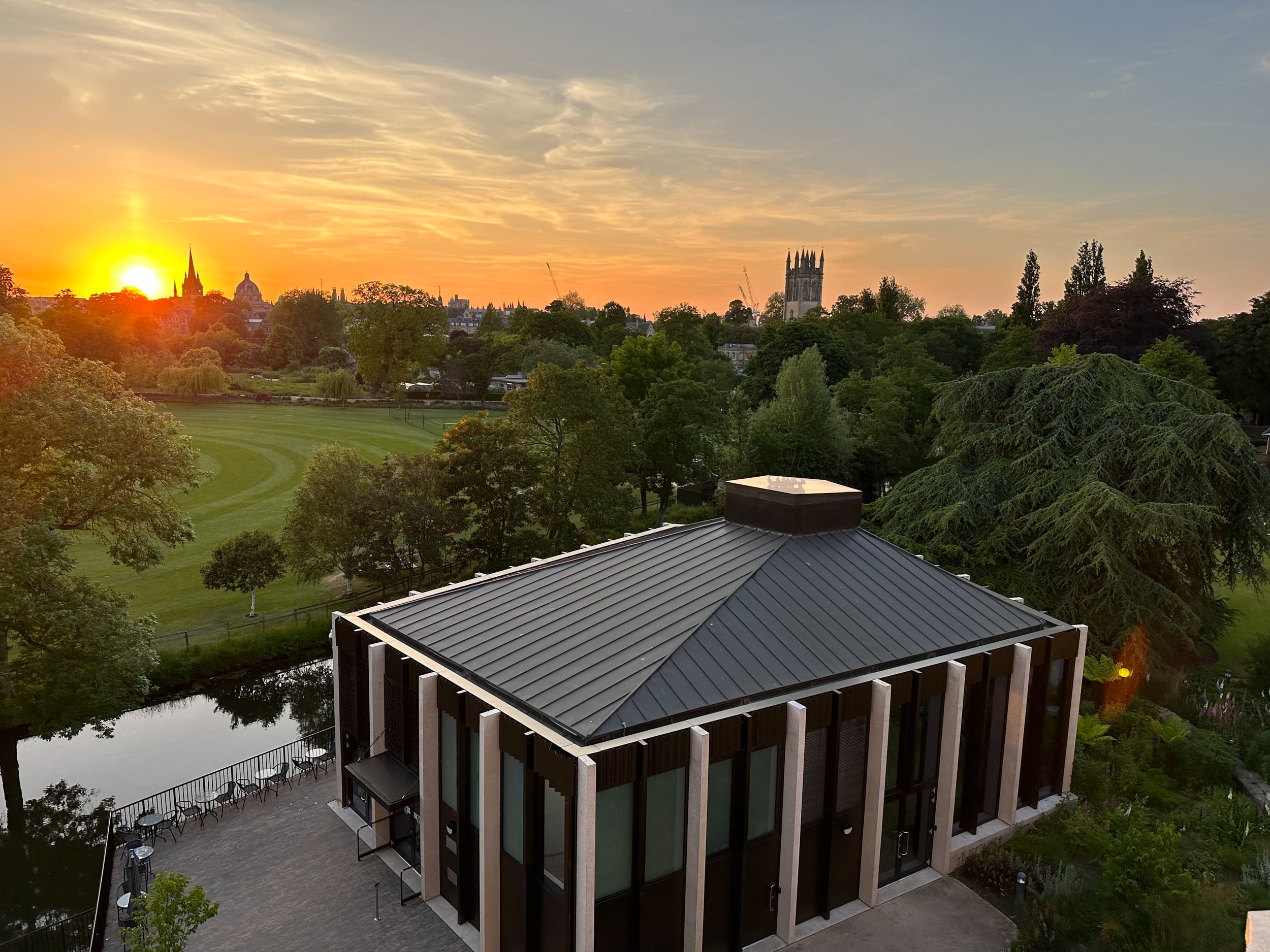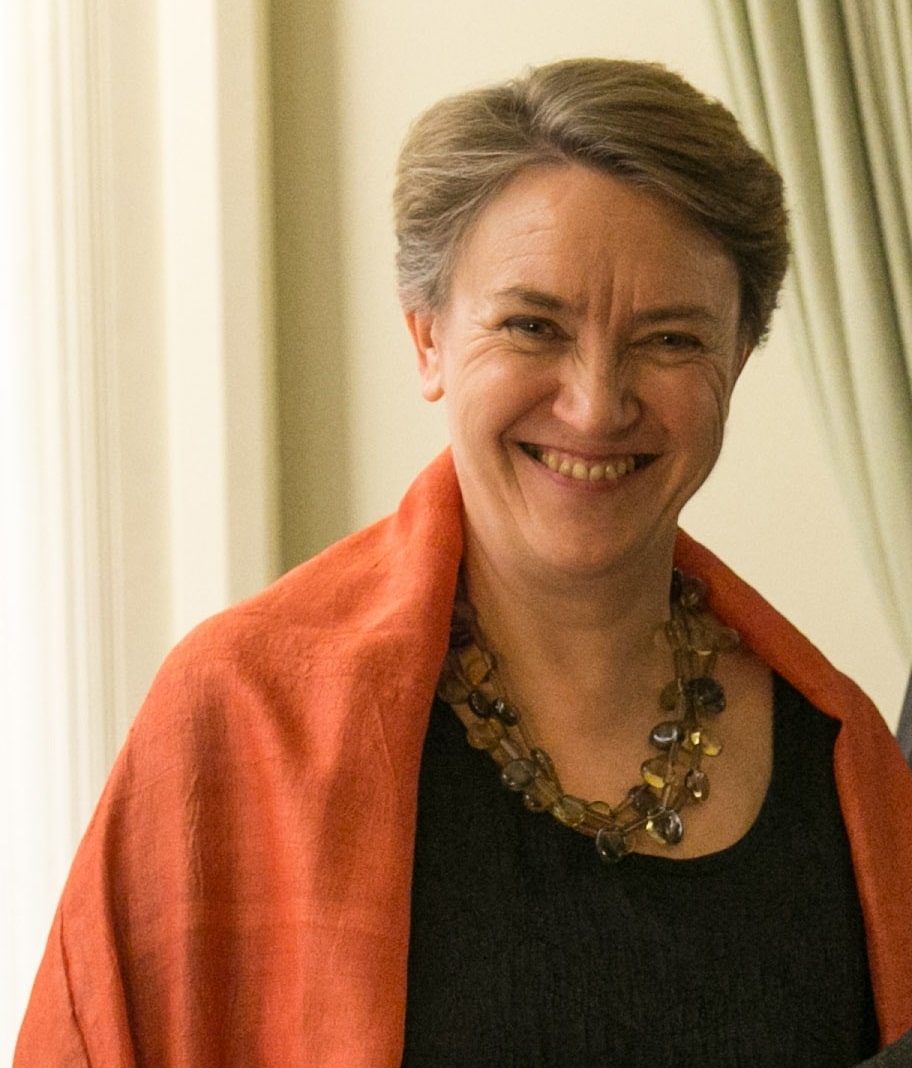
Biography
Dr Georgina Paul did her BA in Modern Languages at St Hilda’s College, Oxford and her DPhil in German at St Hilda’s and the Universität Hamburg, and has been a Fellow of the Alexander von Humboldt Foundation at the Humboldt Universität Berlin. She was a lecturer in the Department of German Studies at the University of Warwick from 1990 before taking up her post as Fellow and Tutor in German at St Hilda’s in 2006. She retired on 30 September 2025.
Dr Georgina Paul’s research specialisms are mainly in contemporary German literature and the literature of the post-1945 period. She wrote her doctorate on the renowned East German writer Christa Wolf and has published extensively on GDR writers and on eastern German literature after re-unification, as well as on women’s writing and the symbolic character of gender in men’s and women’s writing in the post-1945 period (looking at work by Ingeborg Bachmann, Max Frisch, Christa Wolf, Elfriede Jelinek, Rainald Goetz, Heiner Müller, and Barbara Köhler).
Georgina's current research has a dual focus. Having in 2013 edited an essay collection on the contemporary poet Barbara Köhler’s Niemands Frau (Nobody’s Wife), a cycle of poems responding to Homer’s Odyssey, she has been investigating other contemporary poetic responses to classical literature, especially Homer and Ovid (including work by Alice Oswald and Anja Utler). At the same time, she has been pursuing a longstanding interest in the painters of the Blauer Reiter, the group around Wassily Kandinsky and Franz Marc in Munich before the First World War, and is writing a book on three paintings which exemplify the creation of art out of relationship, dialogue, and the specifics of time and place.
Georgina is a prizewinning translator of contemporary German poetry, and values her role as a mediator of German culture through collaborations with such institutions as the Goethe-Institut and the German Academic Exchange Service.
Dr Georgina Paul taught German literature from the eighteenth to the twenty-first centuries as well as German language and film for St Hilda’s, and lectured in the Faculty on the literature of the post-1945 period. She has in the past supervised successful doctoral theses on women writers of the Expressionist period, the Austrian writer Ingeborg Bachmann, the contemporary avantgarde writer Anne Duden, German literature in translation post-1990, pop-feminism in Germany, Britain and the USA, and the poet Thomas Kling as a case study in poetic tradition in the 20th century.
Monograph
Perspectives on Gender in Post-1945 German Literature, Studies in German Literature Linguistics and Culture (Rochester, NY: Camden House, 2009)
Edited volumes
Editor, An Odyssey for Our Time: Barbara Köhler’s Niemands Frau, German Monitor, vol. 78 (Amsterdam, New York: Rodopi, 2013)
Editor, with Helmut Schmitz, Entgegenkommen: Dialogues with Barbara Köhler, German Monitor, vol. 48 (Amsterdam, Atlanta, GA: Rodopi, 2000)
Selected articles/chapters in books
‘TAXUS: EIBE: MEHRSPRACHIGE ZWIESPRACHE’, in “was warten ist”: Garten der Wörter – ein Florilegium für Barbara Köhler, ed. Andreas Erb and Christof Hamann, Die Horen: Zeitschrift für Literatur, Kunst und Kritik, 67. Jahrgang (2022), Band 286, 17-18
‘Barbara Köhler († 08. Januar 2021) zum Gedenken‘, literaturkritik.de (February 2021), https://literaturkritik.de/barbara-koehler-08-januar-2021-zum-gedenken,27646.html
‘Übersetzende, zweistimmig’, in Niemand weiß, wie ich gewesen. Nachklänge, Übersetzungen, Korrespondenzen – und Engel, ed. Andreas Erb and Christof Hamann, Die Horen: Zeitschrift für Literatur, Kunst und Kritik, 65. Jahrgang (2020), Band 277, 200-205
‘Excavations in Homer: Speculative archaeologies in Alice Oswald's and Barbara Köhler's Responses to the Iliad and the Odyssey’, in Homer’s Daughters: Women’s Responses to Homer in the Twentieth Century and Beyond, ed. Fiona Cox and Elena Theodorakopoulos, Oxford: OUP, 2019, pp. 143-160
‘Material Metamorphoses: Barbara Köhler and Anja Utler Rework Ovid’, in Ovid and Identity in the 21st Century, ed. Daniel Orrells and Tessa Roynon, special number of the International Journal of the Classical Tradition 26 (2019), 359-376
‘From Epic to Lyric: Alice Oswald’s and Barbara Köhler’s Refigurings of Homeric Epic’, in Epic Performances: From the middle ages into the twenty-first century, ed. Fiona Macintosh, Justine McConnell, Stephen Harrison, Claire Kenward, Oxford: OUP, 2018, pp. 133-148
‘Writing as a “sie”: Reflections on Barbara Köhler’s Odyssey cycle Niemands Frau’, Angelaki 22.1 (2017), 289-295
‘Feminism in the German Democratic Republic: The Discreet Charm of the Bourgeois Literary Tradition’, in Fractured Legacies: Historical, cultural and political perspectives on German feminism, ed. Birgit Mikus and Emily Spiers, Special Number of Oxford German Studies 41 No. 1 (March 2016), 62-82
‘Gender in GDR Literature’, in Rereading East Germany: The Literature and Film of the GDR, ed. Karen Leeder (Cambridge: CUP, 2016), pp. 106-125
‘“aber erzählen läßt sich nichts ohne Zeit”: Time and Atemporality in Christa Wolf’s Subjectively Authentic Narratives’, in The Self in Transition. East German Autobiographical Writing Before and After Unification. Essays in Honour of Dennis Tate, ed. David Clarke and Axel Goodbody (German Monitor Vol. 75), Amsterdam/New York: Rodopi, 2012, pp. 109-121
‘Christa Wolf’s Medea. Stimmen’, in The Novel in German since 1990, ed. Stuart Taberner (Cambridge: CUP, 2011), pp. 64-78
‘The Terrorist in the Theatre: Elfriede Jelinek’s / Nicolas Stemann’s Ulrike Maria Stuart (2006)’, Festschrift for Elizabeth Boa, German Life and Letters LXIV No. 1 (2011), 122-132
‘The Privatization of Community: The Legacy of Collectivism in the Post-Socialist Literature of Eastern Germany’, Oxford German Studies Volume 38, Number 3 (2009), 288-298
‘Ismene at the Crossroads: Gender and Poetic Influence’, in Flaschenpost. German Poetry and the Long Twentieth Century, ed. Karen Leeder, Special Number of German Life and Letters LX No.3 (2007), 430-446
‘Unschuld, du Licht meiner Augen: Elke Erb in the company of Friederike Mayröcker in the aftermath of German unification’, in Schaltstelle: Contemporary German Poetry in Dialogue, ed. Karen Leeder (Amsterdam: Rodopi, 2007), pp. 139-62
‘Multiple refractions, or winning movement out of myth: Barbara Köhler’s poem cycle “Elektra. Spiegelungen”’, German Life and Letters, LVII No.1 (2004), 21-32
‘An Easter of Words: Steps Towards a Reading of Anne Duden’s Steinschlag’, in Anne Duden: A Revolution of Words. Approaches to her Fiction, Poetry and Essays, ed. Heike Bartel and Elizabeth Boa (Amsterdam, New York: Rodopi, 2003), pp. 123-148
‘“Ich, Seherin, gehörte zum Palast”: Christa Wolf’s literary treatment of the Staatssicherheit in the context of her poetics of self-analysis’, in German Writers and the Politics of Culture: Dealing with the Stasi, ed. Paul Cooke and Andrew Plowman (Basingstoke: Palgrave Macmillan, 2003), pp. 87-106
‘Schwierigkeiten mit der Dialektik: Zu Christa Wolfs Medea. Stimmen’, German Life and Letters, L No. 2 (1997), 227-240
With Godfrey Carr, ‘Unification and its Aftermath: The Challenge of History’, in: German Cultural Studies: An Introduction, ed. Rob Burns (Oxford: OUP, 1995), 325-348
Translations
Barbara Köhler, ‘As It Turns Out’, ‘Poem’, ‘Rondeau Allemagne’, ‘Somebody’s Going’, and four poems from the cycle Niemands Frau: ‘Muse : Polytrope’, ‘Autopilot’, ‘Sirens’, ‘Afterword, Interim’ trans. Georgina Paul, https://www.poetryinternational.com/en/poets-poems/poets/poet/102-21106_Kohler
Barbara Köhler, ‘Gedicht’, ‘Rondeau Allemagne’, ‘Jemand geht’, trans. Georgina Paul, https://www.lyrikline.org/en/authors/barbara-koehler
Jan Wagner, ‘Haute coiffure’, ‘Champignons’, ‘Herbstvillanelle’, ‘Gaststuben in der Provinz’, ‘Kleinstadtelegie’, ‘Nature morte’, trans. Georgina Paul, https://www.lyrikline.org/en/authors/jan-wagner
Jan Wagner, ‘provincial bar rooms’, ‘haute coiffure’, and ‘small town elegy’, trans. Georgina Paul, Shampoo, Issue 35, March 2009
Jan Wagner, ‘Champignons’, trans. Georgina Paul, Literary Imagination, Vol. 9 (2007), No. 3, p. 349
Jan Wagner, ‘Frogs’, trans. Georgina Paul, Twentieth-century German poetry: an anthology, ed. Michael Hofmann, New York: Farrar, Straus and Giroux, 2006; The Faber Book of 20th-Century German Poems, ed. Michael Hofmann, London: Faber & Faber, 2005
Jan Wagner, translated by Iain Galbraith and Georgina Paul, 35th Poetry International Festival, Rotterdam, 12-18 June 2004 (pamphlet)
Barbara Köhler, ‘Beginning III’ and ‘Rock Bottom’, trans. Georgina Paul, Leviathan Quarterly 3 (March 2002), pp.89-90
Barbara Köhler, ‘No Man’s Shore’, ‘Hotel Vörös Csillag’ and ‘Sea in Sight’, trans. Georgina Paul, in Cambridge Conference of Contemporary Poetry Review 11, CCCP 2001, n.p.
‘German Roulette: Poems by Barbara Köhler. Translated from the German by Georgina Paul’ [awarded first prize in the British Comparative Literature Association/British Centre for Literary Translation annual translation competition, 1998], Comparative Criticism 21 (1999), pp. 223-28
Positions
- Emeritus Fellow in German
Subjects
- German
- Modern Languages
